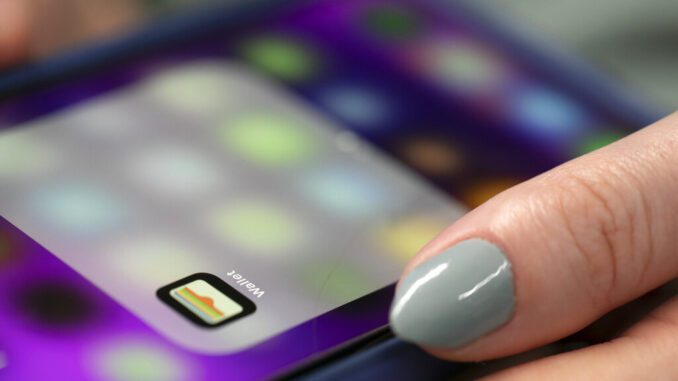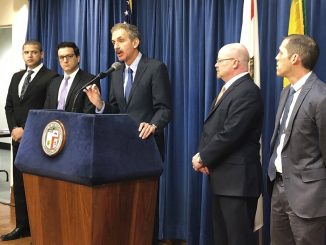
Paycheck advance apps let users borrow a small amount of their expected earnings, usually in exchange for a small fee, and repay it on their next payday.
It seems like an attractive offer if you need extra cash between paychecks, and millions of users have accepted it. While it’s possible to use these apps without harming your finances, some consumer advocates say they can lead to a cycle of debt.
If you’re thinking of using a paycheck advance app, here’s what to know before you download.
FEES FRAMED AS TIPS
When Jose Polanco uses the Earnin app to borrow from his upcoming paycheck, the app asks him if he wants to leave a tip.
The New York school administrator says he gives the app $8 for the $100 he usually borrows. He says he’s persuaded by the message the app displays that leaving a bigger tip helps pay for users who can’t afford to tip at all.
Optional tips are a common way these apps reframe fees. While usually not required, they’re frequently encouraged.
Earnin CEO Ram Palaniappan says tips let the user decide what the service is worth to them rather than requiring a fee they may not be able to afford.
Some advances come with additional fees. Dave, another paycheck advance app, has three optional fees: a monthly $1 subscription fee, an express fee to get your money faster and a tip.
For a couple hundred dollars — the maximum amount you can borrow from most apps — the fees aren’t as high as most payday loans or overdraft fees.
But asking the user to decide how much to pay doesn’t give them a chance to evaluate the full cost of borrowing in the way displaying an annual percentage rate would, says Marisabel Torres, director of California policy at the Center for Responsible Lending.
“Not calling it a fee and framing it as a tip, that’s actually disingenuous to the user because then the amount that that product actually costs you is muddled,” she says.
THE RISKS: OVERDRAFTS, CHRONIC BORROWING
To sign up with a paycheck advance app, users normally have to provide proof of their pay schedule and income, and often access to their bank accounts so the app can withdraw the money they owe when they get paid.
Some of the apps say they’ll monitor your bank account and try to avoid a debit if your balance is too low. Debiting a balance that’s too low can cause an overdraft fee — a fee some apps market themselves as an alternative to — and you could need to borrow again.
It’s not yet clear how often app usage triggers an overdraft fee, says Alex Horowitz, senior research officer with the Pew Charitable Trusts.
But an April report from the Financial Health Network found that 70% of consumers who used a service to access their earnings early returned to use them consecutively — behavior that’s common with payday loans, he says.
“It’s not just that they’re using it multiple times in a year, it’s that they’re using it multiple times in a row,” Horowitz says. “That indicates that they couldn’t repay it without taking another advance shortly after to cover their bills.”
NOT A PERMANENT SOLUTION
You may have cheaper alternatives if you need to borrow money, Torres says.
Credit unions and some banks offer small-dollar loans that are repaid in affordable monthly installments. A friend or family member may be able to lend you the money and let you repay it over time.
There isn’t enough research to know if getting an advance from an app leaves consumers better or worse off, says Nakita Cuttino, a visiting assistant professor at Duke University School of Law whose research focuses on financial services and financial inclusion.
In 2019, the New York Department of Financial Services — along with several other states and Puerto Rico — announced an investigation into the earned wage access industry, of which these types of apps are a part, to determine whether they violate state lending laws.
When they’re used to resolve a one-time emergency, Cuttino says, an advance may be cheaper and more convenient — and lowers the risk of overborrowing because of their low dollar amounts.
If you do borrow from one of these apps, understand how it’ll affect your budget and make a plan to repay it, she says. And if you find yourself returning to borrow each pay period or incurring frequent overdraft fees, it may not be right for you.



